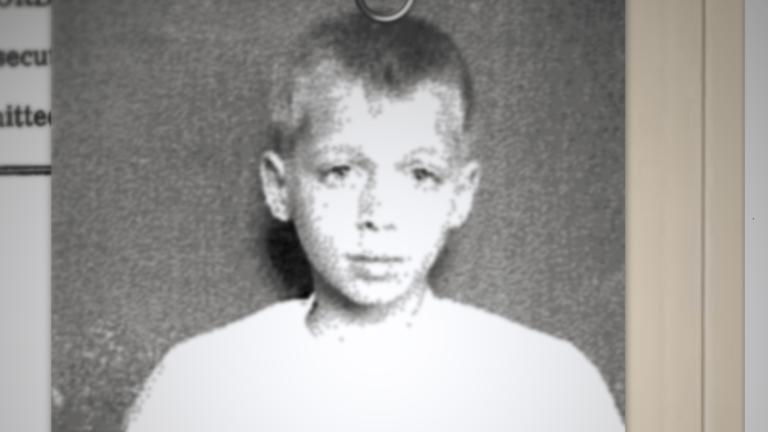Why do we allow the most vulnerable people in our society to be dehumanized? And what happens when a dark family secret, long hidden, emerges?
Filmmaker Barri Cohen explores these questions in her documentary Unloved: Huronia’s Forgotten Children. Cohen embarked on a journey to uncover the stories of her two half‐brothers, Alfie and Louis, who were institutionalized at the Huronia Regional Centre in Orillia, Ontario – a place with a notorious reputation for overcrowding, unsanitary conditions and harsh treatment. Both brothers died there, one as a small child who was buried in secret in an unmarked grave.
The film sheds light on this family story and the stories of other Huronia survivors who speak of the cruel treatment they suffered. Away from their families and homes, intellectually disabled children and youth were stripped of their dignity, neglected and abused.
Huronia was one of many institutions in Canada, the United States and the United Kingdom for children labelled as intellectually disabled. Parents were encouraged to send them to institutions for care – but the children often experienced cruelty, exploitation and abuse.
In 2010, survivors Pat Seth and Marie Slark launched a landmark class‐action lawsuit against the Province of Ontario seeking redress for the pain, suffering, abuse and neglect of thousands of children and youth institutionalized at Huronia from 1945 to 2009. In 2013, an out‐of‐court settlement included reparations for survivors from 15 similar institutions across Ontario. In 2013, Ontario Premier Kathleen Wynne apologized on behalf of the Province to the former residents of Huronia.
Cohen wove the voices of survivors into her film.
The screening will be followed by a panel discussion that will include a Q+A with the audience.
Barri Cohen
Barri Cohen is an award‐winning writer, director and producer of independent documentaries and television series across a range of genres for specialty audiences in Canada and around the world. Prior to Unloved, she coproduced the Emmy nominated feature documentary, Toxic Beauty. Much of her work involves health, mental health, the environment and social justice issues. Cohen is a columnist of Point of View magazine and co‐founder of the Hot Docs International Documentary Film Festival. She is currently developing a family drama series, writing a memoir collection and studying psychoanalysis.
Shelley Fletcher
Shelley Fletcher is Executive Director of People First of Canada. People First of Canada is the national voice for people who have been labeled with an intellectual or developmental disability. The organization focuses on human rights, citizenship rights, accommodation rights and language rights. Members see themselves as self‐advocates and full citizens, living equally in the community, and believe in the right to freedom, choice and equality for all.
Kevin Johnson
Kevin Johnson participates in many organizations, including on the board of People First Canada and in the Advisory Committee for Closing Institutions in Manitoba. Kevin is passionate about reaching out to educate and support the community and make a difference. He co‐produced on the documentary Freedom Tour.
Moderator: Madeline Burghardt
Moderator: Madeline Burghardt is Assistant Professor in the Department of Occupational Therapy in the College of Rehabilitation Sciences at the University of Manitoba. She has a PhD in Critical Disability Studies from York University and is the author of Broken: Institutions, Families, and the Construction of Intellectual Disability (McGill-Queen’s University Press, 2018). Madeline has worked extensively with people labelled with intellectual disabilities in professional and artistic capacities and is an ally of the institutional survivor community. She is a member of the St. Amant Research Centre team, where she will conduct collaborative research with people with disabilities and their families, and is part of the Participatory Advocacy Research Network, an academic‐activist allyship devoted to strengthening participatory research capacities within the intellectual disability community.
